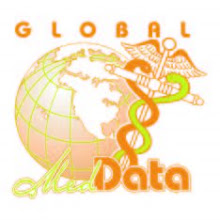Physicians won't hesitate to implement the latest proven diagnostic and treatment tools, the patient benefits are clear and justify the investment. But when it comes to their practice management, physicians are, by and large, technology challenged. Most still take notes with pens and clipboards, double-enter patient information on computers installed years or even decades ago, collaborate via inter-office faxes, and so on (as reported by a recent Rand Study).
Look no further than Congress for evidence that practice management is stuck in an '80s mindset. For years, legislators have been drumming up proposals devised to motivate health care organizations to embrace EHRs. Indeed, multiple bills are winding their way through Congress right now, including HR 2377, reintroduced by Rep. Phil Gingrey (R-GA), which uses tax abatements to encourage health care organizations to invest in HIT, specifically EHRs and e-prescriptions. Congress is throwing money at physicians to adopt a process - digital record keeping - that businesses in general have been using for more than 20 years. Health care's reluctance to modernize practice management and reimbursement systems has reached epidemic proportions. The primary symptom: spiraling health care costs put intensive downward pressure on physicians' revenue while, at the same time, put upward pressure on their costs. The result: another "catch 22" in the health care crisis.
The time has come for physicians to become advocates of IT solutions and services as modern and innovative as their diagnostic, treatment and surgical tools. By reducing costs, improving workflow and streamlining operations, modern management systems and services can help cure what ails the health care field, and resuscitate a struggling industry.
A recent RAND study determined that HIT (Health Information Technology), when properly implemented and widely adopted would save money and significantly improve health care quality, the two biggest issues facing the health care industry. HIT encompasses all aspects workflow, practice management and electronic prescriptions, transcriptions and EHR's. However, most available HIT technology have not provided physicians with realistic solutions. It can cost nearly half a million dollars to install an EHR system, plus around $10,000 a year in staff costs (per full-time physician) to operate, according to the Medical Group Management Association (MGMA). And that doesn't factor in the ongoing technical staffing and IT costs, these more complicated systems require. Larger organizations can absorb these expenses, but smaller ones can be crushed by them. Compare that to the $10,009 in staff costs when managing paper records within a practice. No wonder that only 10 to 20 percent of physician's have installed EHRs. However, the web-based technology solutions that most EMR companies are not offering because they want your money, is the only HIT solution that makes sense to the physician.
Solutions:
- Outsource models that remove the IT burden from physicians. This is the smartest way to deliver IT solutions to an office that lacks IT expertise. This modular approach is particularly suited for small offices, and saves valuable time and money. Larger offices that have difficulty maintaining skilled staff will also find this approach very attractive.
- Solid functionality tailored to needs and specialty.
- Deep vendor experience in the industry, reflected directly in the software and services.
- Proven financial returns or return on investment.
The result: physicians will manage their medical offices better, improve patient treatment and increase efficiency. Our transcription module and workflow system is currently available and we plan to launch more EHR modules in the coming months. Please contact us if you are interested in receiving more information.
Global MedData is a provider of digital transcription services and EHR to physician practices and clinics in the U.S. and to the National Health Service Hospitals in the U.K. For more information email us at: info@globalmeddata.net


No comments:
Post a Comment